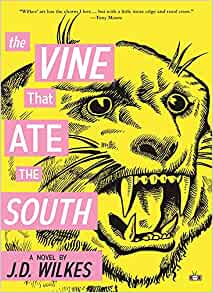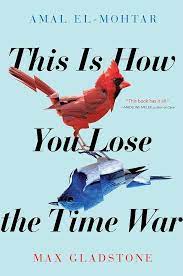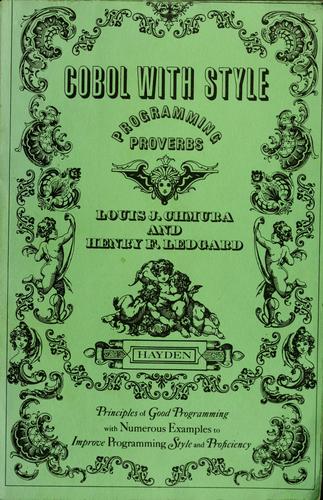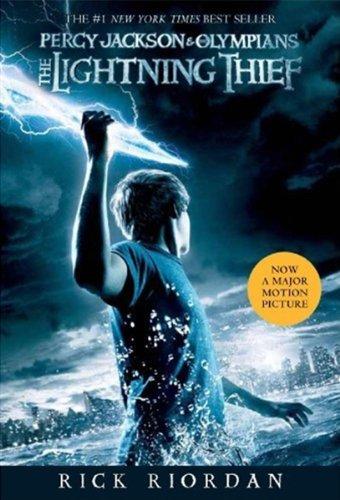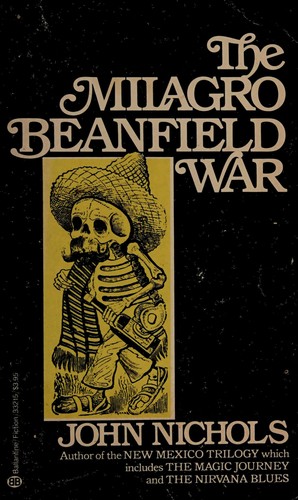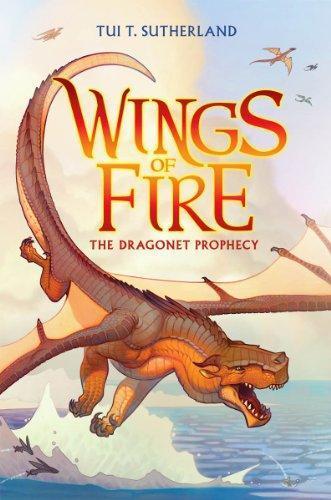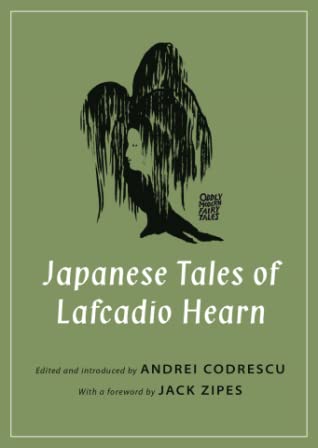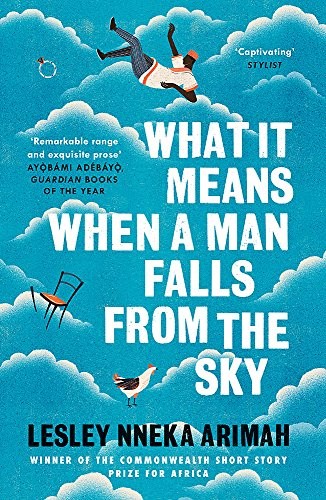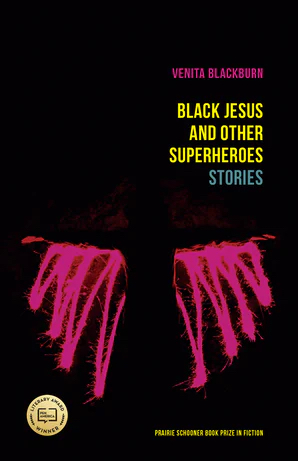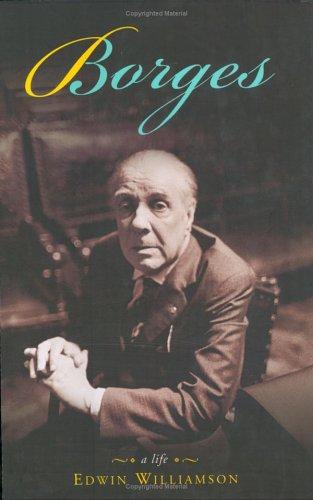On one level, a lyrical and ethereal time travel romance that feels fresh. On another, a metaphysical work about the power of words to transform our selves and our world. Absolute stunner.
User Profile
This link opens in a pop-up window
User Activity
[email protected] reviewed COBOL WITH STYLE by Louis J. Chmura
Suprising resonant though I don't know COBOL
4 stars
I picked this book up on a whim when it was on a free shelf outside a store in a tiny town in New Mexico. I was intrigued by a book about programming from 1976 with a cover that gave a feeling of downright whimsy; cherubs, intricate ornamental patterns along the border. And even the title: "COBOL with Style" gave it a more modern feel. Most older programming books I have encountered have a much dryer, matter-of-fact presentation, setting out to teach you the facts of the language.
Though I've never written a line of COBOL in my life, and never plan to, I decided to read this anyway and I was pleasantly surprised by how much of it felt applicable. It spends most of the first half encouraging you not to just jump into programming, but spending time upfront assessing and fleshing out the actual problem, planning your approach …
I picked this book up on a whim when it was on a free shelf outside a store in a tiny town in New Mexico. I was intrigued by a book about programming from 1976 with a cover that gave a feeling of downright whimsy; cherubs, intricate ornamental patterns along the border. And even the title: "COBOL with Style" gave it a more modern feel. Most older programming books I have encountered have a much dryer, matter-of-fact presentation, setting out to teach you the facts of the language.
Though I've never written a line of COBOL in my life, and never plan to, I decided to read this anyway and I was pleasantly surprised by how much of it felt applicable. It spends most of the first half encouraging you not to just jump into programming, but spending time upfront assessing and fleshing out the actual problem, planning your approach in pseudo-code, and determining your documentation strategy. Then the advice about writing code is mostly about using meaningful variable names, structuring your code with module to make it easier to read, and other strategies for making it easy for others to understand the code.
Anyway, it was an interesting read, giving me a peak into what it must have been like for COBOL programmers, and just how long some ideas about good programming have been around.
[email protected] reviewed Milagro Beanfld War by John Nichols
A war of ideas, via beans
5 stars
A wildly entertaining and enthralling story of a small New Mexico town (Milagro) and the effects of money, power, history, and perception, on the lives of both its residents, both poor and wealthy. The author spares no paragraphs in telling the sometimes tragic, sometimes ridiculous, history of the towns residents, many of whose families date back to original Spanish settlers.
What I've really been left thinking about is the statement it makes about the outsized importance that the perception of power plays in determining the towns fate. While the richest person in town (referred to via nicknames and translation from Spanish as "Vulture" Devine ) has accumulated most of the land and power in town, seizing on the times of weakness of the poor, what doomed the residents, and their ancestors, to dispossession was their perception that they were powerless. The crux of the novel is about taking power, even …
A wildly entertaining and enthralling story of a small New Mexico town (Milagro) and the effects of money, power, history, and perception, on the lives of both its residents, both poor and wealthy. The author spares no paragraphs in telling the sometimes tragic, sometimes ridiculous, history of the towns residents, many of whose families date back to original Spanish settlers.
What I've really been left thinking about is the statement it makes about the outsized importance that the perception of power plays in determining the towns fate. While the richest person in town (referred to via nicknames and translation from Spanish as "Vulture" Devine ) has accumulated most of the land and power in town, seizing on the times of weakness of the poor, what doomed the residents, and their ancestors, to dispossession was their perception that they were powerless. The crux of the novel is about taking power, even in small, stupid, spiteful ways that aren't "political statements", but just individual's asserting their power to do something forbidden because it makes them feel less hopeless. Though some of the poorer residents try to transform the small act of refusal into a catalyst for collective progress, they struggle with their communities own divisions, personal histories, and fears. Nonetheless, the powerful residents start to believe the poor are organizing and dangerous, and that perception starts to tilt the balance of power.
Perfectly readable middle grades adventure
4 stars
Reading the series with my 11yo, and found the first book perfectly enjoyable. Angsty youth dragons tasked with saving the world learn to make their way in it.
Japanese fairy tales as told by an outsider/insider
4 stars
I really enjoyed these spooky fairy tales with mercurial fairy kings, a woman whose soul was a tree, nefarious floating ghost heads, and more. Apparently Hearn collected these tales over his decades settling into a Japanese life, translating and selecting ones he’d thought would be interesting to a Western audience.
I was fascinated by the life of Lafcadio Hearn as described in the introduction. His peripatetic biography was wild, from tiny Greek Island childhood to London pauper, to Midwestern reporter to chronicler of New Orleans backways, and then ultimately settling in Japan. I think I’ll be reading more about him based in this.
Beautifully crafted stories and characters
5 stars
A joy to read , even when the stories themselves deal with difficult topics, because of the effortless flow of the narrative in each short tale. As a collection, it gives a kind of kaleidoscopic view of Nigéria: past, present, and future; from hard nosed reality to speculative magical realism; from the homeland to the diaspora. Absolutely loved it and can’t wait to read more from the author.
Not as good as I’d hoped
3 stars
A collection of short stories, with an emphasis on short. Many 2 page stories that felt more like an idea for a short story, or a scene from a full story. Perhaps a stylistic choice to go along with the “peek in my on someones life” theme of these stories, but it just felt jarring to me. The author also goes heavy on literary stylistics, using unusual and surprising metaphors and descriptions, which I found distracting and confusing. That said, I really enjoyed he last two stories in this collection which are longer and more fleshed out, where the author’s style is spread out around exposition that helps ground the characters, enriching them to be more than mere vehicles for ideas.
[email protected] reviewed Borges, a life by Edwin Williamson
Like a narrator for Borges' inner monologue
4 stars
The thing I found most enthralling about this biography of Borges, is also what gave me pause: the intense and assured focus on Borges' inner life and its influence on his writing. Williamson spins a compelling narrative about the how the traumas, and occasional triumphs, of Borges personal life were the driving force behind the triumphs, and occasional traumas, of his public life as an author, poet, and scholar. The book delves deep into the formative experiences of his life, from isolated in-home education and the wonder of his father's library, the pressure of his storied patrician familial background and his mother's expectations, to his struggle's with romantic love and his own insecurities about being worthy of it. Williamson's depiction of Borges channeling those feelings into writing is persuasive and effortless, almost always letting the actions and creative works speak for themselves in showing their relationship.
And yet...while I found …
The thing I found most enthralling about this biography of Borges, is also what gave me pause: the intense and assured focus on Borges' inner life and its influence on his writing. Williamson spins a compelling narrative about the how the traumas, and occasional triumphs, of Borges personal life were the driving force behind the triumphs, and occasional traumas, of his public life as an author, poet, and scholar. The book delves deep into the formative experiences of his life, from isolated in-home education and the wonder of his father's library, the pressure of his storied patrician familial background and his mother's expectations, to his struggle's with romantic love and his own insecurities about being worthy of it. Williamson's depiction of Borges channeling those feelings into writing is persuasive and effortless, almost always letting the actions and creative works speak for themselves in showing their relationship.
And yet...while I found no reason to doubt Williamson's psychological assessment of Borges, I found myself wondering about the veracity claims about his mental state and motivations. Knowing my own feelings hard enough...I don't know how I could ever be as certain of another human being's mental and emotional state as Williamson is of Borges'.
And yet...surely Borges would hear my argument and laugh and assure me, that all history, particularly all biography, is itself a form fiction; a tale told a particular way to convey a meaning. As Williamson shows very effectively, his writing is littered with biographical details drawn from his own life and of shelves of those around him. Borges intentionally blurred the line between fiction and history so often, that it feels fitting that this biography would take the form of a well crafted narrative that compels you, and makes you want to believe.

